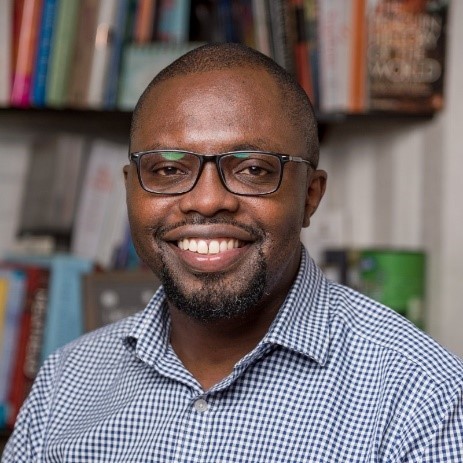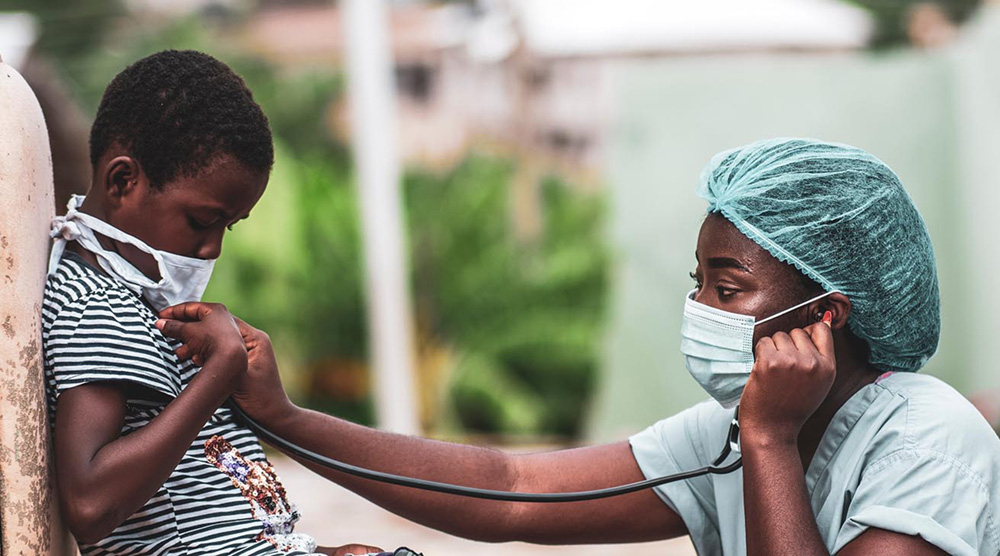When COVID-19 hit early in 2020, many of us in Kenya were ready to respond to the new, virtual world we were entering. We were able to rapidly train thousands of health workers in the most accurate and up-to-date information on COVID-19 infection control measures.
How were we already prepared to train doctors, nurses and community health workers virtually, while the rest of the world was scrambling?
The foundation was laid in 2016, when the Ministry of Health partnered with Columbia University, the U.S. Centers for Disease Control and Prevention Kenya, and the National Tuberculosis Program. Together, they leveraged Project ECHO’s tele-mentoring model to tackle HIV and tuberculosis – serious public health issues that are among the leading causes of death nationally.
Growing the ECHO Network to Serve More Kenyans
Through the ECHO Model, medical specialists – who are often based in urban centers – share their knowledge with health care workers in rural and underserved urban areas through virtual mentoring sessions. These local providers are able to learn new treatments and receive guidance on how to handle difficult cases, and they also benefit by learning from peers working in communities similar to their own.
This approach helps surface solutions that already exist within these communities. They already have the talent, the local knowledge and the desire to do what’s needed. The ECHO programs provide local health care providers with the right support at the right time to treat illness and improve health in their communities.
Based on its initial success, the Ministry of Health used the ECHO Model in 2018 to disseminate new guidelines for HIV treatment and prevention to health practitioners across Kenya. Compared to prior guideline dissemination initiatives the difference in speed, effectiveness and cost was significant.
The process normally would have taken about two years, countless trips to 47 counties, and expensive, time-consuming on-site trainings. Instead, the new guideline dissemination was completed in just one month. The National AIDS and STI Control program trained more than 1,000 doctors, nurses and non-governmental organization workers on the latest HIV guidelines so they could provide the best-practice care for their communities. Hundreds of thousands of Kenyans gained access to the latest HIV treatments exponentially faster.
Getting the new HIV guidelines into the hands of frontline doctors and nurses so quickly undoubtedly saved lives. It also saved money. Using the ECHO Model dramatically cut dissemination costs, per participant, by more than 250%. If we apply this novel guideline dissemination approach across the country to a range of health issues beyond HIV, that’s potentially a lot of savings.

Since then, we have used the ECHO Model to help address antimicrobial resistance, non-communicable diseases, pediatric tuberculosis, autism – and now COVID-19. We have expanded our partnership to include the University of Nairobi, Jhpiego – an international health nonprofit affiliated with Johns Hopkins University and the AMPATH Centre at the Moi Teaching and Referral Hospital in Western Kenya.
A Vision for Regional Growth and National Transformation
These successes are among the reasons why we’ve expanded Kenya’s ECHO network beyond Nairobi, establishing regional training centers in 17 counties. The idea is for local counties to manage their own ECHO programs so that knowledge sharing occurs within a local context. When we launched the expanded ECHO network in April 2021, more than 1,000 health care workers from all over the country joined to learn more about COVID-19 vaccine delivery.
There is so much potential – and so much need – for ECHO in Kenya, where we have just 1.5 doctors per 10,000 people. That’s far below the ratio recommended by the World Health Organization of one doctor for every 1,000 people.
Even though we’ve expanded the ECHO network significantly, our goal is to go further and engage all counties across Kenya, to ensure that the latest medical knowledge and treatment innovations reach everyone. We’re also working to expand the model regionally by creating an East Africa Regional ECHO network to share COVID-19 knowledge and problem solve collaboratively across the East Africa region, including Somalia, South Sudan, Uganda, Ethiopia, Rwanda and Tanzania. Similar networks already operate in Southern and Western Africa.
Ultimately, I hope that ECHO will become broadly embedded in Kenya’s health care system. Project ECHO works closely with ministries of health in more than 13 African countries, including Zambia, Namibia and Uganda. A similarly strong partnership, adapted to Kenya’s unique needs and circumstances, could work well here.
It’s time to create a new norm for health care and medical education in Kenya. It shouldn’t take years for new medical knowledge and expertise to reach all our communities. Project ECHO programs in Kenya have demonstrated that we can accomplish this much faster, and at a much lower cost by supporting our local health care providers. The solution is already in the communities: let’s give them the system they need.
Help scale Project ECHO across Kenya and East Africa. Learn more at echo.unm.edu.
Featured image description: A health care provider in Kenya uses skills gained through Project ECHO to examine a young patient, part of a nationwide effort to expand access to quality care through virtual training and mentorship.


